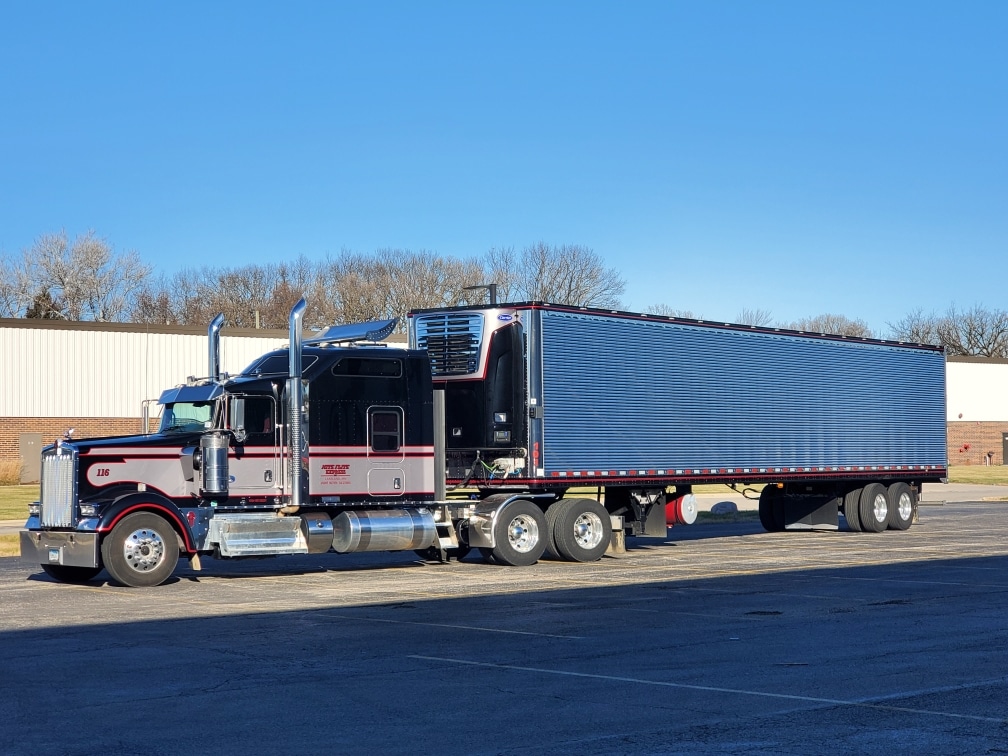- What is Fleet Compliance
- Why is Fleet Compliance Required
- Who Regulates Fleet Compliance
- Types of Fleet Compliance
Learn More From Fleet EAs everyone in the trucking and transportation industry know, compliance with federal safety regulations set forth by the U.S. The Department of Transportation (DOT) is critical to keeping your fleet on the road.
To ensure fleet managers are adhering to these regulations, the DOT conducts annual inspections on all commercial vehicles that weigh more than 10,000 pounds. Inspectors are looking for a variety of potential safety hazards ranging from poor vehicle maintenance to a lack of seatbelt use by the driver. And not everyone is following the rules. According to a report from the Federal Motor Carrier Safety Administration’s (FMCSA) Motor Carrier Management Information System, nearly 945,000 driver violations were found in 2019.
In this post, we’ll do a deep dive into fleet compliance. We’ll cover:
- What is fleet compliance?
- Why is fleet compliance required?
- Who regulates fleet compliance?
- Types of fleet compliance
- How you can learn more from fleet experts
What is Fleet Compliance?
Fleet compliance means meeting or exceeding compliance requirements and staying up to date with FMCSA and DOT rules and regulations. We’ll explain the five types of fleet compliance in a moment.

Why is Fleet Compliance Required?
The DOT’s goal is to ensure that commercial vehicles are operating safely as they transport goods and materials across the country. With the authority to conduct roadside inspections – and they do close to four million of them at weigh stations every year – inspectors can monitor vehicles and drivers to make sure they are in compliance with federal and state regulations. If they’re not, fleet managers could find themselves on the hook for some pretty major fines.
However, even though the DOT is extremely proactive with inspections and enforcement, the agency can’t prevent every accident. In 2019, DOT data indicated that more than 181,000 collisions involving large trucks and buses were reported along with roughly 5,000 fatalities and 97,000 injuries.
Who regulates fleet compliance?
The FMCSA is the agency within the DOT that is responsible for regulating the commercial motor vehicle industry. Its mission is to reduce crashes, injuries, and fatalities involving large trucks and buses. They carry out that mission by issuing regulations that commercial vehicle operators are required to follow and they partner with federal, state, and local enforcement agencies to make sure operators are adhering to those rules.
Types of Fleet Compliance
The FMCSA has five main types of fleet compliance that fleet managers are required to follow. While there are a lot of moving parts to stay on top of when it comes to compliance, if fleet managers are proactive and employ the use of technology and fleet management software, they can be prepared to pass every inspection with flying colors.
Driver Qualification & Random Substance Screenings
Drivers are the cornerstone of the trucking and transportation industry and if they are operating unsafely due to the influence of drugs and alcohol, it can put everyone on the road at risk.
According to FMCSA regulations, motor carriers must conduct drug and alcohol testing before hiring commercial drivers as part of their pre-employment background check and then again annually. Testing can also occur at random or following an accident, among other times. Companies can perform this testing themselves or can outsource it to a third-party provider.
HOS Compliance
HOS stands for hours of service, and it is a critical area in fleet compliance. Why? Because driver fatigue often plays a role when an accident occurs. HOS regulations state that property-carrying drivers have an 11-hour driving limit after 10 hours off-duty. Additionally, they are not allowed to drive beyond the 14th consecutive hour after duty and their off-duty time will not extend this period. Legally, drivers are required to update their hours in a driver’s log – in this case, by using an FMCSA-approved electronic logging device (ELD).
IFTA Compliance
IFTA, which stands for the International Fuel Tax Agreement, is a reporting system that has been adopted in 48 states and 10 Canadian provinces to help determine the destination of fuel taxes paid by truck drivers. Before the creation of the IFTA, a carrier had to get fuel permits every time he crossed the border into another state.
Now that the IFTA is in place, the carrier only needs to record miles driven, fuel purchases, and the locations where those purchases were made. This information is submitted quarterly to the driver’s home base IFTA and then fuel taxes are given to states and provinces based on how many miles were driven on their roads.
CSA Scores
CSA scores, also known as compliance, safety, and accountability scores, are used to identify carriers that have shown themselves to be high-risk from a safety standpoint and prioritize them for interventions. To calculate these scores, the FMCSA groups together carriers with a similar number of safety events and assigns each carrier a percentile rank. This data is stored online and updated monthly with data from roadside inspections. It’s organized into seven Behavior Analysis and Safety Improvement Categories and carriers receive scores in each area: HOS compliance, crash indicator, controlled substances/alcohol, driver fitness, unsafe driving, vehicle maintenance, and hazardous materials compliance.
The goal of the fleet manager is to keep those scores as low as possible through driver training, routine maintenance, and thorough record-keeping.
DVIR Compliance
Driver vehicle inspection reports must be filled out before and after every trip, per FMCSA requirements. Common items on a DVIR checklist include tires, lights, brakes, air systems, safety, and emergency equipment, and mirrors. Should a driver get pulled over by a DOT agent, that agent will inspect the items found on the checklist.
This is one of the main reasons fleet managers and drivers need to pay close attention to the condition of their vehicles. That way, minor issues can be repaired before they lead to major problems such as fines or worse, accidents.
Learn More From Fleet Experts
Keeping your fleet in compliance with DOT regulations is a must if you want your vehicles to stay on the road and requires a great deal of diligence from everyone on the team. However, through solid preventative maintenance programs, thorough record-keeping, and regular driver training, you can ensure that your fleet is operating safely and is ready for every inspection.
Need help getting your fleet management plans together? Look no further than Blaine Brothers.
Our team of experts is dedicated to providing high-quality customized services to companies of all sizes across the upper midwest.
As one of the most trusted names in the trucking and transportation industry for more than 40 years, we’re confident we can help you with all your fleet management and compliance needs. Contact us today to find out how we can support you on every mile of your journey.


